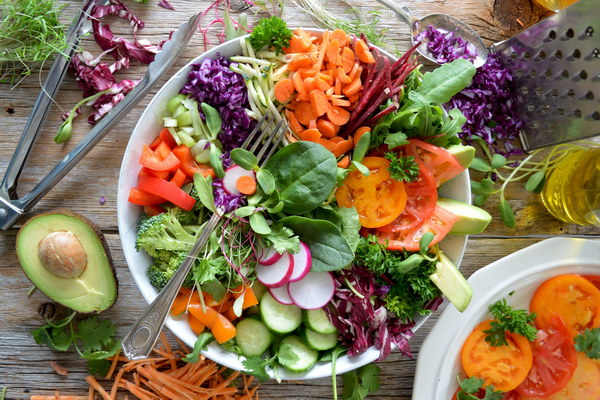Nourish Your Stomach A Guide to GastricFriendly Eating Habits
In the fast-paced world we live in, it's easy to fall into the trap of unhealthy eating habits. However, nurturing your stomach with proper dietary choices is essential for overall health and well-being. Here's a comprehensive guide to adopting gastric-friendly eating habits that can help keep your stomach happy and healthy.
1. Eat Smaller, More Frequent Meals
Instead of eating three large meals a day, try to consume smaller, more frequent meals. This approach helps prevent overeating and keeps your stomach functioning smoothly. Aim for five to six small meals throughout the day, ensuring each meal is well-balanced and nutrient-rich.
2. Choose Gentle Foods
Certain foods are easier on the stomach than others. Opt for gentle foods such as bananas, rice, applesauce, and toast when you're feeling queasy or have an upset stomach. These bland foods are easier to digest and can help soothe stomach discomfort.
3. Avoid Highly Processed Foods
Processed foods are often high in unhealthy fats, sugars, and preservatives, which can irritate your stomach and lead to digestive issues. Minimize the consumption of processed snacks, fast food, and convenience meals, and instead focus on whole, unprocessed foods.

4. Stay Hydrated
Drinking plenty of water is crucial for maintaining good stomach health. Water helps break down food, aids in digestion, and keeps the stomach lining hydrated. Aim to drink at least 8 glasses of water a day, and consider adding a slice of lemon or cucumber for a refreshing twist.
5. Eat at Regular Intervals
Establishing a regular eating schedule is beneficial for your stomach. Try to eat meals at consistent times each day, as this helps regulate the digestive process and prevents stomach acid from becoming too acidic or too dilute.
6. Chew Thoroughly
Chewing your food well is an essential part of the digestive process. It breaks down food into smaller particles, making it easier for the stomach to digest. Take the time to chew each bite thoroughly, and avoid eating too quickly.
7. Incorporate Probiotics
Probiotics are beneficial bacteria that help maintain a healthy balance of gut flora. Incorporate probiotics into your diet by consuming fermented foods such as yogurt, kefir, sauerkraut, and kimchi. These foods can help improve digestion and support a strong immune system.
8. Limit Spicy and Fatty Foods
Spicy and fatty foods can irritate the stomach lining and lead to discomfort. If you enjoy these flavors, try to limit your intake and opt for milder versions when possible. You can also reduce the severity of these effects by pairing spicy or fatty foods with plenty of fiber-rich foods.
9. Manage Stress
Stress can negatively impact your digestive health. When you're stressed, your body produces more stomach acid, which can lead to discomfort and heartburn. Find ways to manage stress, such as practicing mindfulness, engaging in physical activity, or seeking professional help if needed.
10. Seek Professional Advice
If you're experiencing persistent stomach issues, it's important to consult with a healthcare professional. They can provide personalized advice and recommend dietary changes or other treatments to address your specific concerns.
By adopting these gastric-friendly eating habits, you can nurture your stomach and improve your overall health. Remember, it takes time and patience to develop new eating habits, but the benefits are well worth the effort. Start by making small changes and gradually incorporate these tips into your daily routine for a happier, healthier stomach.









